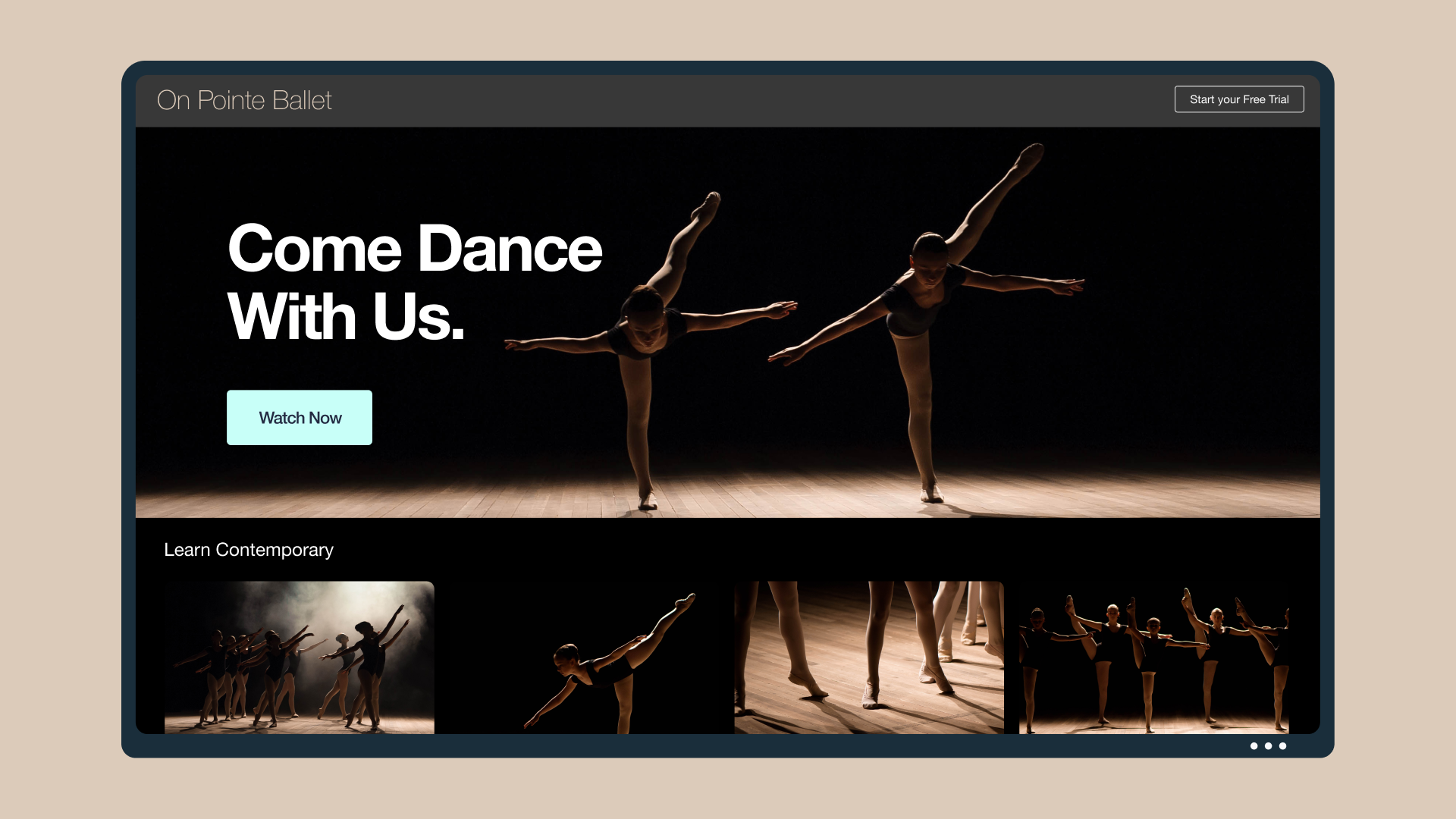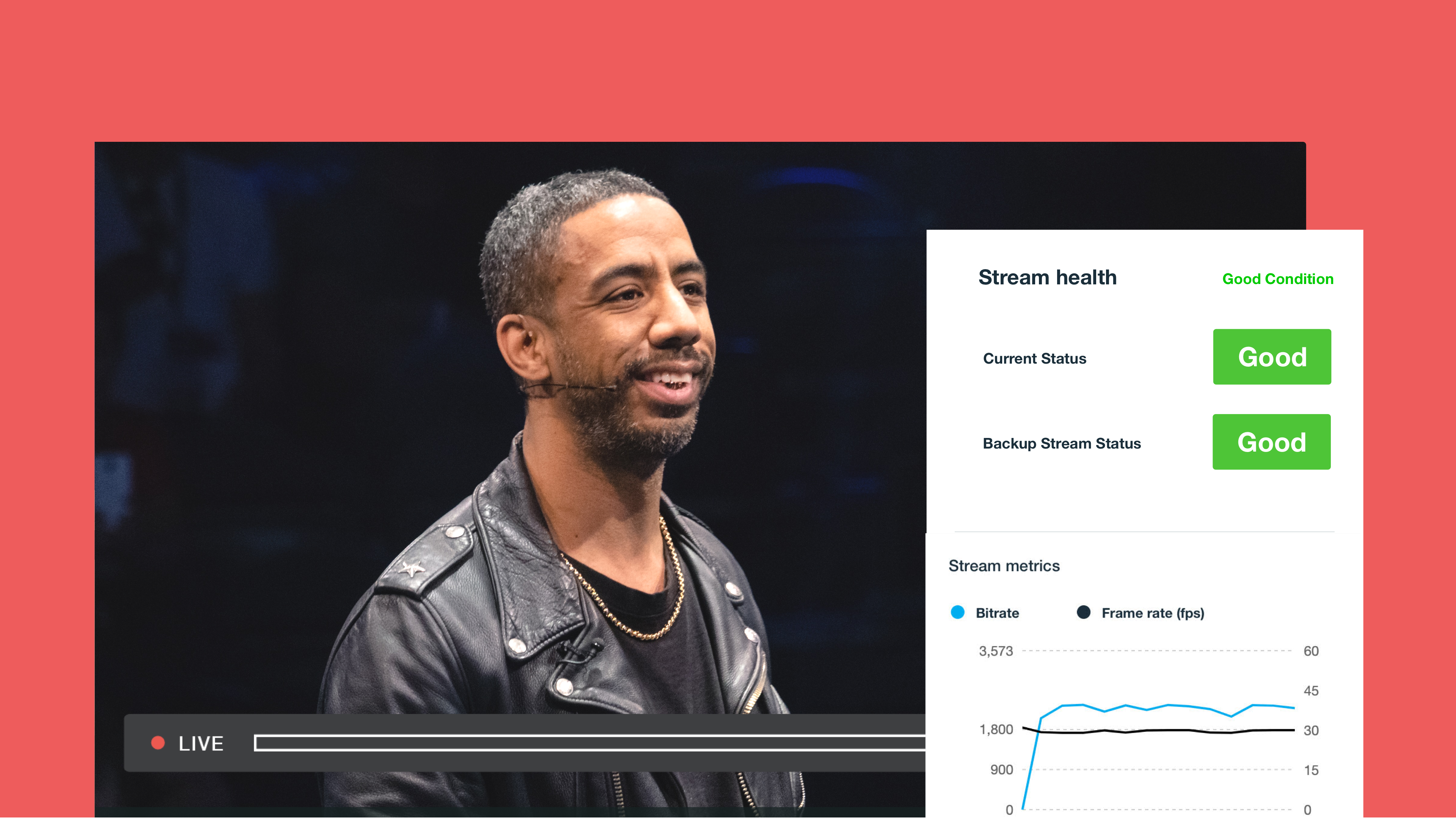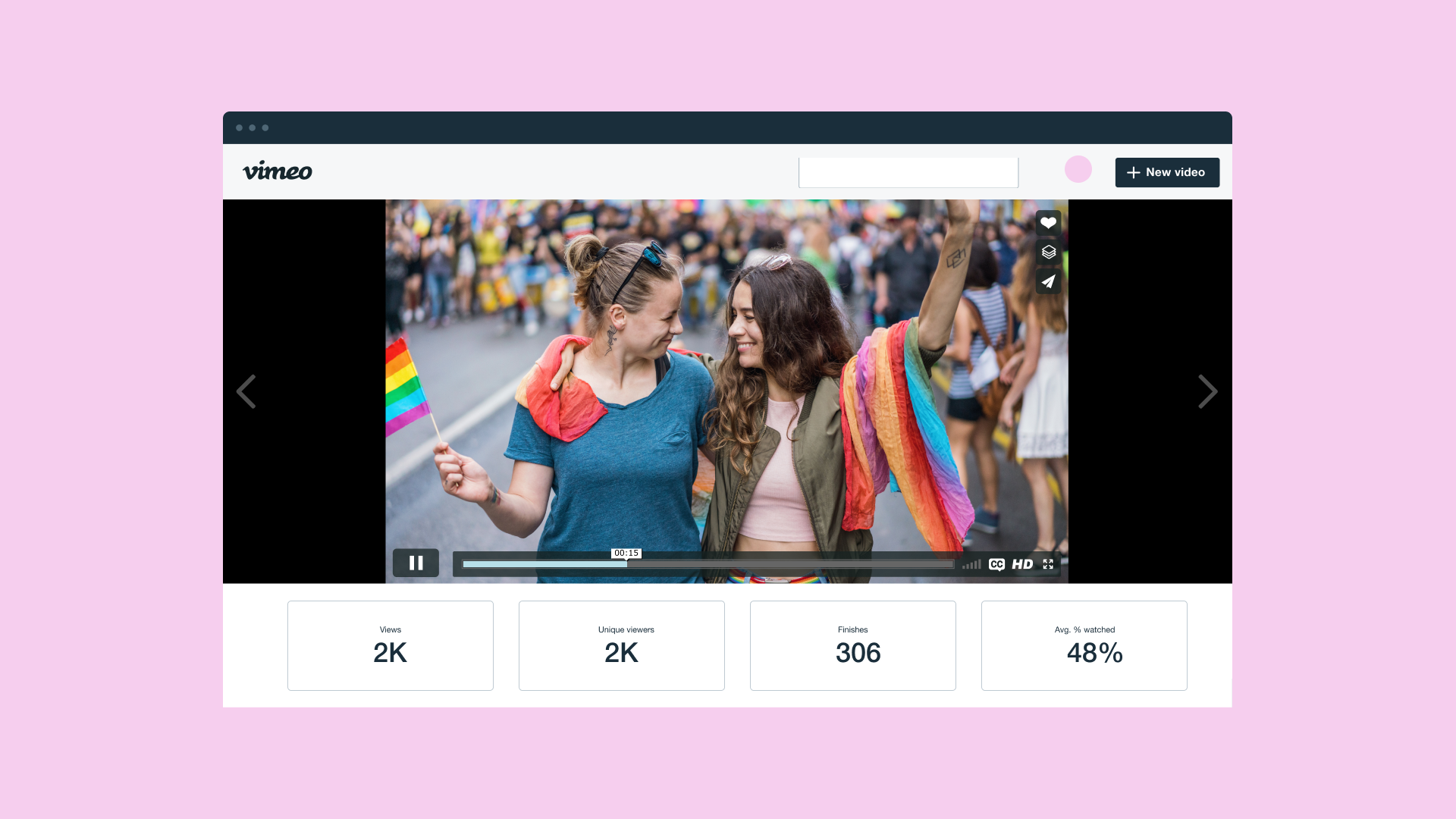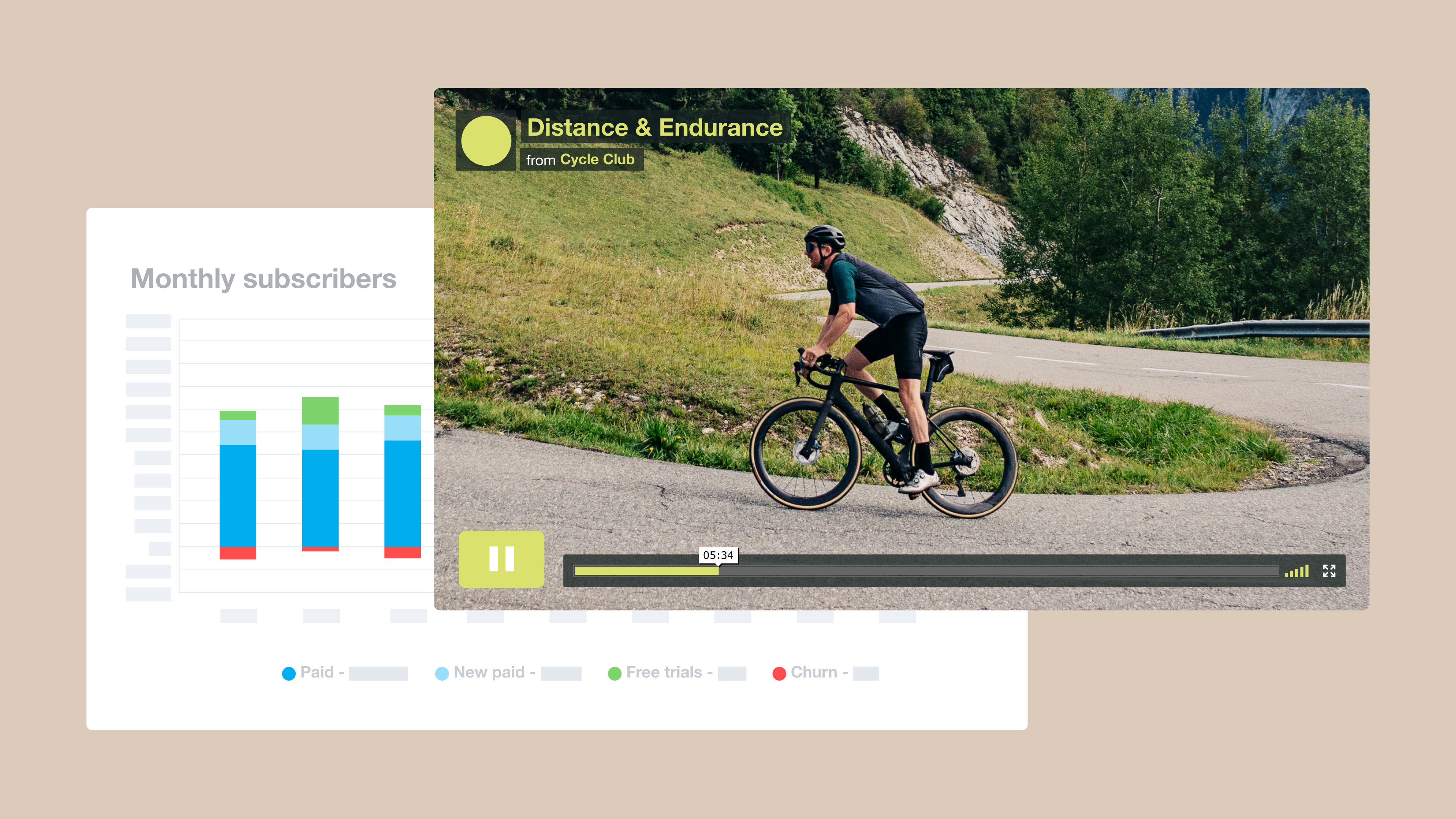A high viewer count might feel like the ultimate validation for a successful stream, but it only tells part of the story. Stream metrics such as average watch time, chat activity, and post-stream engagement offer far deeper insight. These data points help streamers of all types understand what captures attention and give you the information you need to grow your audience.
Competition is fierce across live streaming platforms, but creators and brands can succeed if they know how to interpret and apply video streaming performance metrics. In this guide, we’ll explore the live-streaming statistics that matter most, explain why they’re important, and suggest how to track them to drive long-term success.
3 stream metrics to measure for better performance
Stream metrics are typically grouped into three categories: real-time data, post-event analytics, and individual viewer engagement. Together, these insights paint an accurate picture of your stream’s performance.
Real-time live-stream analytics
Monitoring real-time metrics, such as Twitch streaming analytics, gives creators a pulse on how their live stream is performing in the moment. This data can guide on-stream decisions, such as when to promote a CTA, switch content formats, or mention a product.
The most important real-time metrics are:
- Currently watching: Shows how many streaming views are happening at any given time.
- Peak views: Highlights the highest number of concurrent viewers during the live session.
- Unique visitors: Counts how many distinct users viewed the stream.
- Average watch time: Measures how long viewers stayed engaged.
- Live chat participation: Tracks how actively the audience interacts through comments and chat.
Post-live-stream analytics and engagement metrics
After your stream ends, your analytic data becomes even more valuable. Post-stream metrics let you understand reach, audience behavior, and content performance across different devices and regions. They include:
- Total views: Counts every play. This number can also include replays through video on demand (VOD).
- Total hours watched: Measures cumulative watch time across all users.
- Average engagement rate: Reflects how consistently your audience stayed tuned.
- Geographic location: Provides a breakdown of where your audience is watching from.
- Domains where viewed: Shows which websites or platforms hosted or embedded your video.
- Device type: Reveals whether viewers watched on mobile, tablet, or desktop.
For creators who make their content available later on demand, many VOD streaming platforms provide continued analytics that can contribute to your content strategy.
Individual viewer engagement data
Some advanced platforms let you dive into data on a per-viewer level, which is ideal for enterprise users and gated content strategies that often need to understand total audience viewing behavior measurement. These metrics will let you see:
- Date and time viewed: Know exactly when a viewer accessed the stream.
- Viewer name with total streams viewed: Tracks loyalty and engagement across sessions.
- IP address: Records view location for geo-targeting or security auditing.
- Heat map: Visualizes which parts of the video were played most often.
Some streaming platforms allow users to track their viewers’ watch history, including the total time spent on a specific channel. On platforms like Vimeo and Uscreen, hosts can view watch time per viewer for gated or authenticated streams and tailor future content.
Start your own streaming channel →
Streaming for businesses: Best practices
Whether hosting a company conference or premiering a new product, businesses can use live streaming to connect with their audience members in more engaging ways. Here are some best practices and the stream metrics supporting each strategy.
Optimize the customer journey and tailor marketing efforts
Live webinars and product Q&As move leads through the funnel. Use engagement, time watched, region, and live average time watched to understand audience intent and where to tailor future campaigns. If you’re interested in deeper analytics, Vimeo for marketing tracks performance across embedded platforms and landing pages. Engage a broader audience online by streaming live events and on-demand video content.
Influence purchasing decisions and increase activations
Product launches or testimonial live streams can drive immediate conversions. The metrics to watch are click-through rate, chat activity, and peak concurrent viewers. Also, for direct content monetization, consider selling streaming videos online using gated or pay-per-view video pages.
Maintain compliance with regulatory requirements
In industries such as healthcare or finance, live streams often need to meet strict standards around privacy and accessibility. Having features like viewer tracking, automatic closed captions, data residency, and audit-ready reports are essential.
Onboard new hires and improve employee skills
Use live or on-demand training videos to enhance workforce knowledge. Total hours watched and average view duration assist HR teams in gauging effectiveness.
Communicate across company teams privately
From executive communications and leadership updates to all-hands meetings, private streams let companies speak to their teams directly. To evaluate reach and accessibility, use unique visitors, device breakdowns, and viewer behavior metrics. Vimeo Enterprise can help support your internal video distribution and control at scale.
Upload your videos to Vimeo →
Frequently asked questions
How do I check my stream stats?
Most streaming platforms, including Vimeo, offer built-in analytics dashboards. You can typically track live viewers, average watch time, peak concurrent users, and post-event performance. Look for tools with real-time data and historical comparisons for more advanced metrics.
Can streamers see who reported them?
On most platforms, due to privacy concerns, streamers aren’t notified of who reported them. However, violations and penalties may be communicated by the platform depending on their community guidelines.
What’s the best time to go live for more viewers?
The ideal time depends on your target audience’s location and habits. Use your platform’s engagement data to identify when your followers are most active. Some platforms, like Twitch’s stats tracker tools, provide insights to identify peak hours. Many creators also use tools that track Twitch TV stats to determine peak engagement windows based on their audience location, content category, and follower behavior.
What’s a good viewer retention rate for live streams?
The benchmark for a strong viewer retention rate varies by industry, but 40–60% is a good range for most streams. Use heat maps and audience behavior data to improve content flow and retention.
How can I tell which parts of my stream viewers liked most?
Use playback graphs to see where viewership spiked or dropped off. On Vimeo, you can use engagement graphs to identify which moments kept your audience tuned in or caused them to leave.
Boost streaming engagement by tracking your audience with Vimeo
Vimeo Streaming is a powerful solution for creators and businesses looking to understand user behavior metrics. With Vimeo, you can track monetization trends, analyze viewership patterns, and optimize content strategy without sacrificing data ownership. These insights help social media creators and businesses identify what works and create better experiences over time.
Go further by connecting with a global audience and boost viewership using AI-driven subtitle translations in 36 languages. Vimeo delivers an exceptional cinematic experience with a high-quality player and dependable live streaming. You can also safeguard your content using digital rights management (DRM), geo-blocking, privacy controls, and additional features.
Whether you're showcasing a live performance, hosting an event, or conducting a Q&A, Vimeo’s platform ensures a smooth and dependable viewing experience at up to 60fps. Our user-friendly, browser-based production tools allow you to live stream confidently, regardless of skill level. We also provide advanced live streaming options, including concurrent streams, backup streams, and extended 24/7 live streaming.




